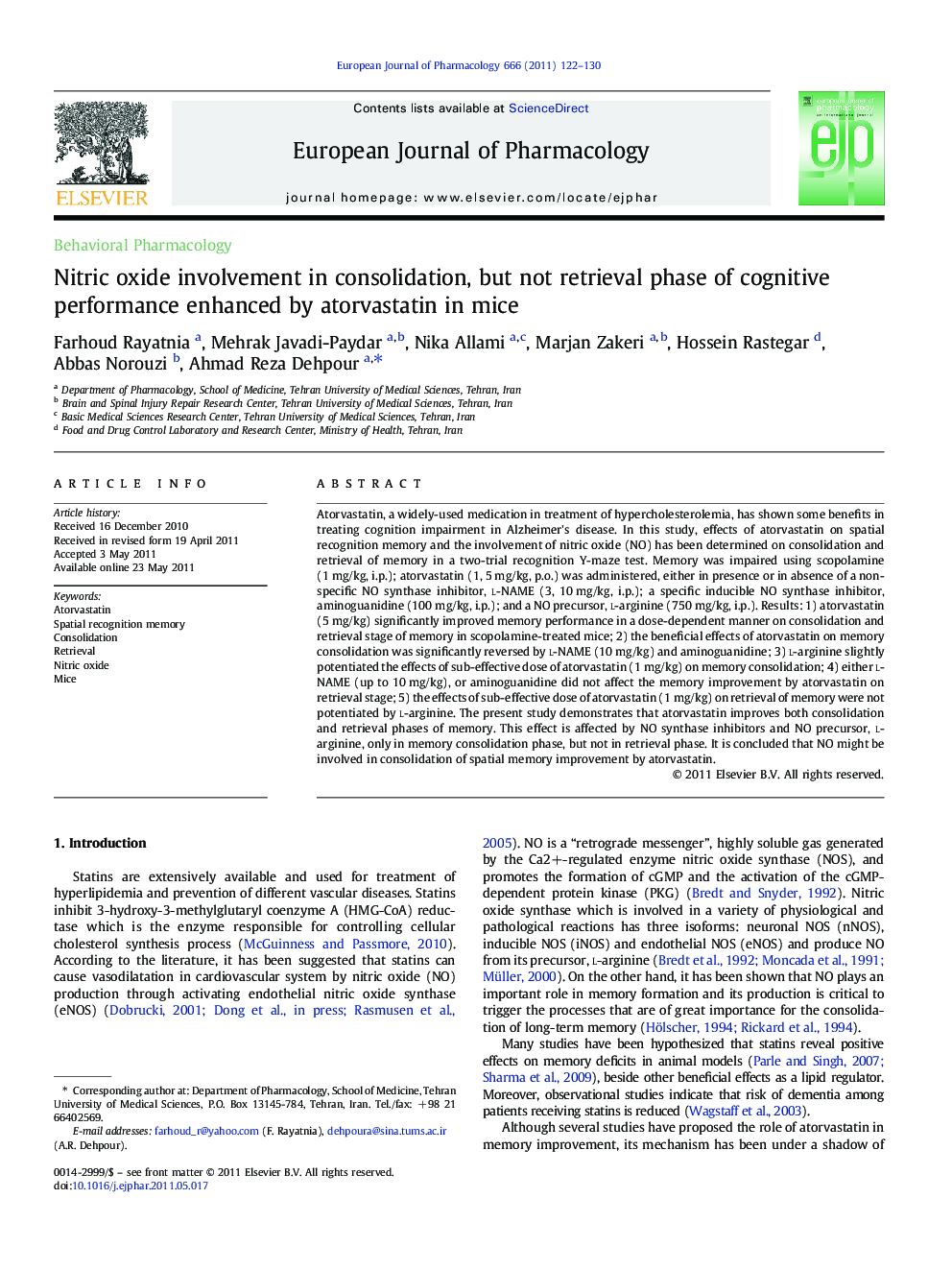| Article ID | Journal | Published Year | Pages | File Type |
|---|---|---|---|---|
| 2532633 | European Journal of Pharmacology | 2011 | 9 Pages |
Atorvastatin, a widely-used medication in treatment of hypercholesterolemia, has shown some benefits in treating cognition impairment in Alzheimer's disease. In this study, effects of atorvastatin on spatial recognition memory and the involvement of nitric oxide (NO) has been determined on consolidation and retrieval of memory in a two-trial recognition Y-maze test. Memory was impaired using scopolamine (1 mg/kg, i.p.); atorvastatin (1, 5 mg/kg, p.o.) was administered, either in presence or in absence of a non-specific NO synthase inhibitor, l-NAME (3, 10 mg/kg, i.p.); a specific inducible NO synthase inhibitor, aminoguanidine (100 mg/kg, i.p.); and a NO precursor, l-arginine (750 mg/kg, i.p.). Results: 1) atorvastatin (5 mg/kg) significantly improved memory performance in a dose-dependent manner on consolidation and retrieval stage of memory in scopolamine-treated mice; 2) the beneficial effects of atorvastatin on memory consolidation was significantly reversed by l-NAME (10 mg/kg) and aminoguanidine; 3) l-arginine slightly potentiated the effects of sub-effective dose of atorvastatin (1 mg/kg) on memory consolidation; 4) either l-NAME (up to 10 mg/kg), or aminoguanidine did not affect the memory improvement by atorvastatin on retrieval stage; 5) the effects of sub-effective dose of atorvastatin (1 mg/kg) on retrieval of memory were not potentiated by l-arginine. The present study demonstrates that atorvastatin improves both consolidation and retrieval phases of memory. This effect is affected by NO synthase inhibitors and NO precursor, l-arginine, only in memory consolidation phase, but not in retrieval phase. It is concluded that NO might be involved in consolidation of spatial memory improvement by atorvastatin.
